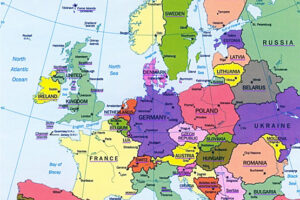William Hill: “New Book: No Place for Russia: European Security Institutions Since 1989”

Subject: New Book: No Place for Russia: European Security Institutions Since 1989
Date: Tue, 14 Aug 2018
From: William Hill <williamhhill@gmail.com>
I believe the following will be of interest to many of your readers, and would be grateful if you could include it in JRL.
As of today (August 14, 2018) my new book — William H. Hill, No Place for Russia: European Security Institutions Since 1989, Columbia University Press — has been released.
This volume traces the development of NATO, the EU, and the OSCE from the end of the Cold War to the present, with a focus on east-west relations and attempts at integrating Russia into a post-Cold War Euro-Atlantic security order.
Basic information on the book is available on the Columbia University Press website:
https://cup.columbia.edu/book/no-place-for-russia/9780231704588
——-
The optimistic vision of a “Europe whole and free” after the fall of the Berlin Wall in 1989 has given way to disillusionment, bitterness, and renewed hostility between Russia and the West. In No Place for Russia, William H. Hill traces the development of the post-Cold War European security order to explain today’s tensions, showing how attempts to integrate Russia into a unified Euro-Atlantic security order were gradually overshadowed by the domination of NATO and the EU–at Russia’s expense.
Hill argues that the redivision of Europe has been largely unintended and not the result of any single decision or action. Instead, the current situation is the cumulative result of many decisions–reasonably made at the time–that gradually produced the current security architecture and led to mutual mistrust. Hill analyzes the United States’ decision to remain in Europe after the Cold War, the emergence of Germany as a major power on the continent, and the transformation of Russia into a nation-state, placing major weight on NATO’s evolution from an alliance dedicated primarily to static collective territorial defense into a security organization with global ambitions and capabilities. Closing with Russia’s annexation of Crimea and war in eastern Ukraine, No Place for Russia argues that the post-Cold War security order in Europe has been irrevocably shattered, to be replaced by a new and as-yet-undefined order.
ABOUT THE AUTHOR
William H. Hill is professor emeritus of national security strategy at the National War College in Washington and a retired foreign service officer who served in various posts in Europe, the U.S. Department of State, U.S. Department of Defense, and the Organization for Security and Cooperation in Europe.
